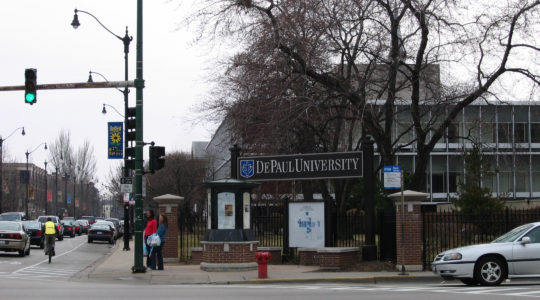(JTA) — The David Project, a pro-Israel organization that morphed from a “combative” advocacy group to a more mainstream educational program for campus activists, will join Hillel international, the groups announced.
The David Project will be integrated into Hinenu, Hillel’s Israel Education and Engagement Department. Hillel and the David Project have been working in partnership for the past five years.
“Hillel values the approach The David Project has taken to build strong relationships on campus with a wide array of students to strengthen the pro-Israel community,” Hillel CEO Eric Fingerhut said in a statement. “This work complements Hillel’s vision of broadening the network of support for Israel throughout the campus.”
In the past academic year, the David Project reached 10,000 Jewish and non-Jewish students on 45 campuses, cultivating student leaders and organizations as allies for Hillel and the pro-Israel community, Hillel said in announcing the collaboration.
The David Project will continue to be led and staffed by its current employees under the guidance of an advisory board to be created with Hillel.
It trains activists to educate students on campus through individual conversations and group programming.
The David Project was launched in 2002 to confront what it identified as radically anti-Israel and pro-Islamist influences on campus. The group produced a controversial film alleging an anti-Israel bias at Columbia University and its founder, Charles Jacobs, publicly opposed a mosque being built in Boston.
In 2015, it moderated its approach under then director David Bernstein, who currently heads the Jewish Council for Public Affairs. In an essay announcing the merger with Hillel, its current executive director, Phillip Brodsky, described the change.
“Our combative approach had not met the broader goal of ridding college campuses of anti-Israel sentiment. So we decided to change,” Brodsky wrote.
“Over the next two years, our staff, board, funders and students refocused The David Project around two key [principles] that continue to shape our work today. The first was to concentrate our efforts on impacting the Israel conversation on select college campuses. And the second was to change our model of advocacy to embrace relationship building as our key organizing strategy.”
JTA has documented Jewish history in real-time for over a century. Keep our journalism strong by joining us in supporting independent, award-winning reporting.





